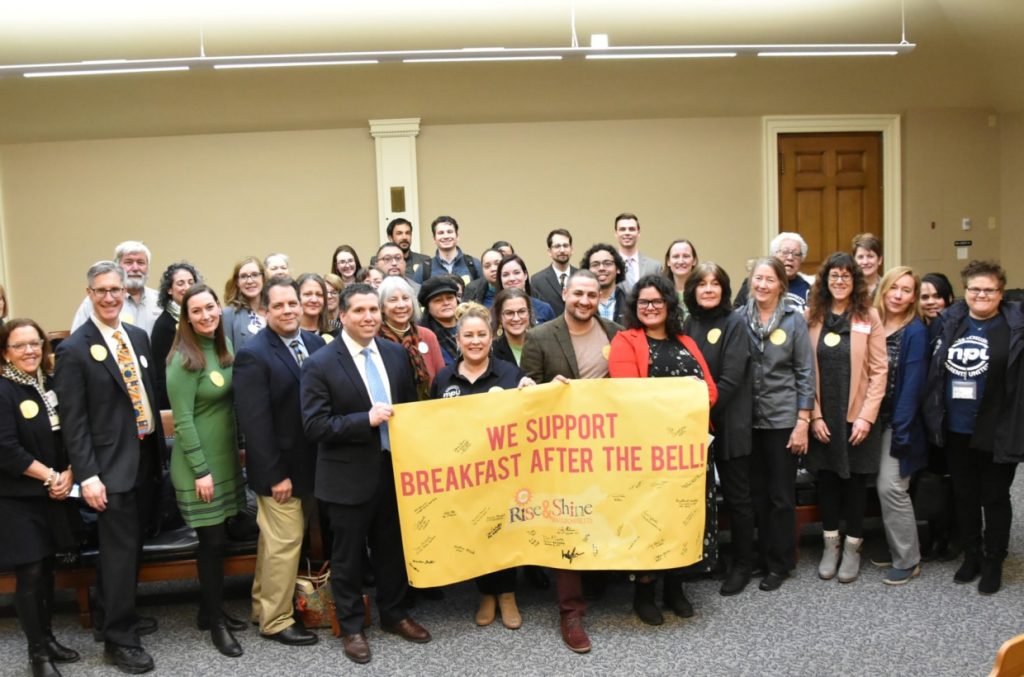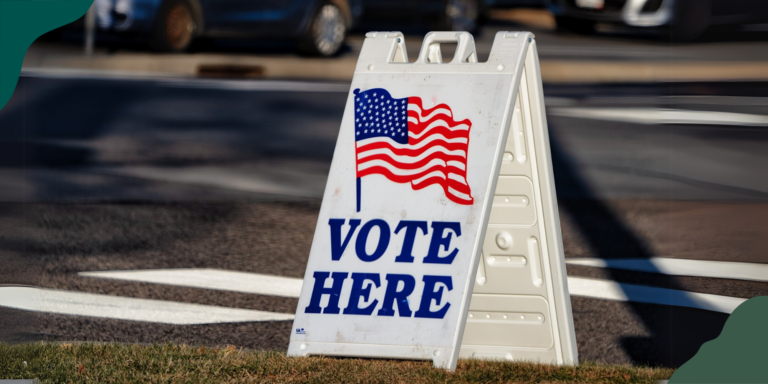Take the Pledge for School Food: Your August Policy Brief
Lawmakers have returned home for August recess — an opportunity to demand they take action for healthy food and heathy kids.
Lawmakers have returned home for August recess — an opportunity to demand they take action for healthy food and heathy kids.

A back to school season like no other is starting, and schools, families, and kids are facing uncertainty around all aspects of school. With nearly 14 million kids facing food insecurity, legislative champions and advocates are working tirelessly to get families and schools the support they need to feed kids.
Federal lawmakers largely returned home for the August recess this month—unfortunately without addressing any of the urgent and immediate needs of struggling families, schools, and state and local governments brought on by the pandemic and economic crisis.
The Senate has released its version of the next COVID-19 relief package, which leaves out policies desperately needed to help families put food on the table, including a boost in SNAP benefits, extension of Pandemic EBT, and funding relief for school nutrition operators. As we write this update, congressional leaders and the White House have not reached an agreement on what should be included in the relief bill, and the negotiation could drag on for weeks. Although the President has taken some executive actions in an attempt to fill some of the gaps, these actions are either temporary fixes or lack enforcement mechanisms. As the pandemic continues, leaving many schools closed, too many kids hungry, and millions of adults out of work, congressional actions are needed now.
August recess doesn’t mean your elected officials are on vacation—it is an opportunity to reach out while they are back home in your communities. Take a minute to demand immediate action to ensure struggling families stay nourished.
Last month, Rep. Bobby Scott (D-VA), Chairman of the House Education and Labor Committee, introduced a bill that would make school meals free for all students—the Pandemic Child Hunger Prevention Act. FoodCorps endorsed the bill along with more than 25 organizations, and joined the Urban School Food Alliance and the School Lunch for All campaign in calling for universal free school meals. The goal for this bill is to be included in the next COVID-19 relief bill. By ensuring all students have access to healthy meals at school, universal free school meals eliminate stigma while reducing paperwork and administrative costs for school districts. “With so much uncertainty facing schools, families, and school nutrition professionals this coming year, now is the time to make meals free for all kids, just like textbooks and school bus rides are free,” said Kumar Chandran, Policy Director of FoodCorps.
Related read: Legislators propose universal free school meals during COVID-19
Many kids arrive at schools with empty bellies. And between getting ready for school, hurrying on and off the school bus, and trying to make it to class on time, getting breakfast in the cafeteria before school starts can be challenging for many kids. In response to this issue, Massachusetts has just made it easier for an estimated 150,000 low-income kids to eat breakfast by allowing kids to eat breakfast in the classroom after the official start of the school day. Breakfast after the Bell legislation is proven to increase school breakfast participation, reduce stigma, and help reduce chronic absenteeism. We thank and congratulate the Greater Boston Food Bank, Project Bread, and Rise and Shine Massachusetts for their tireless advocacy, and the state legislature and Gov. Charlie Baker for prioritizing access to healthy school meals for all students.
Election season is nearly here, and there’s a lot at stake. Elected officials at all levels of government—from the president to your local city council members—play a role in child nutrition. That means you have a say in shaping school meals in your community.
You can take action for healthy school meals today. Take the #PledgeForSchoolFood and we’ll let you know when you can demand policies that support healthy food, healthy schools, and healthy kids. Together, we can build an equitable, resilient school food system that nourishes every child, regardless of race, place, or class.
FoodCorps is a non-partisan, non-profit organization. FoodCorps staff and FoodCorps AmeriCorps members may not participate in any partisan or seemingly partisan activities during work time charged to a Corporation for National and Community Service funded grant or while earning AmeriCorps service hours. No federal funds were used to prepare or distribute these advocacy actions.

9 Thoughtful Holiday Gifts Made by FoodCorps Alumni

The Policy Brief, Fall 2024: After the Election

Food as Medicine: Teaching Indigenous Foodways